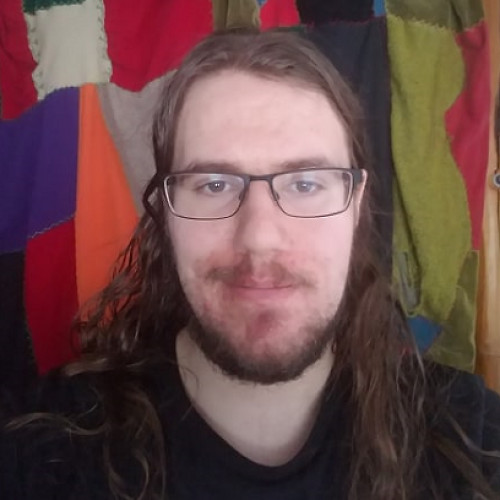The Last of Us Part 2's ending is a broken tale of nihilistic indulgence
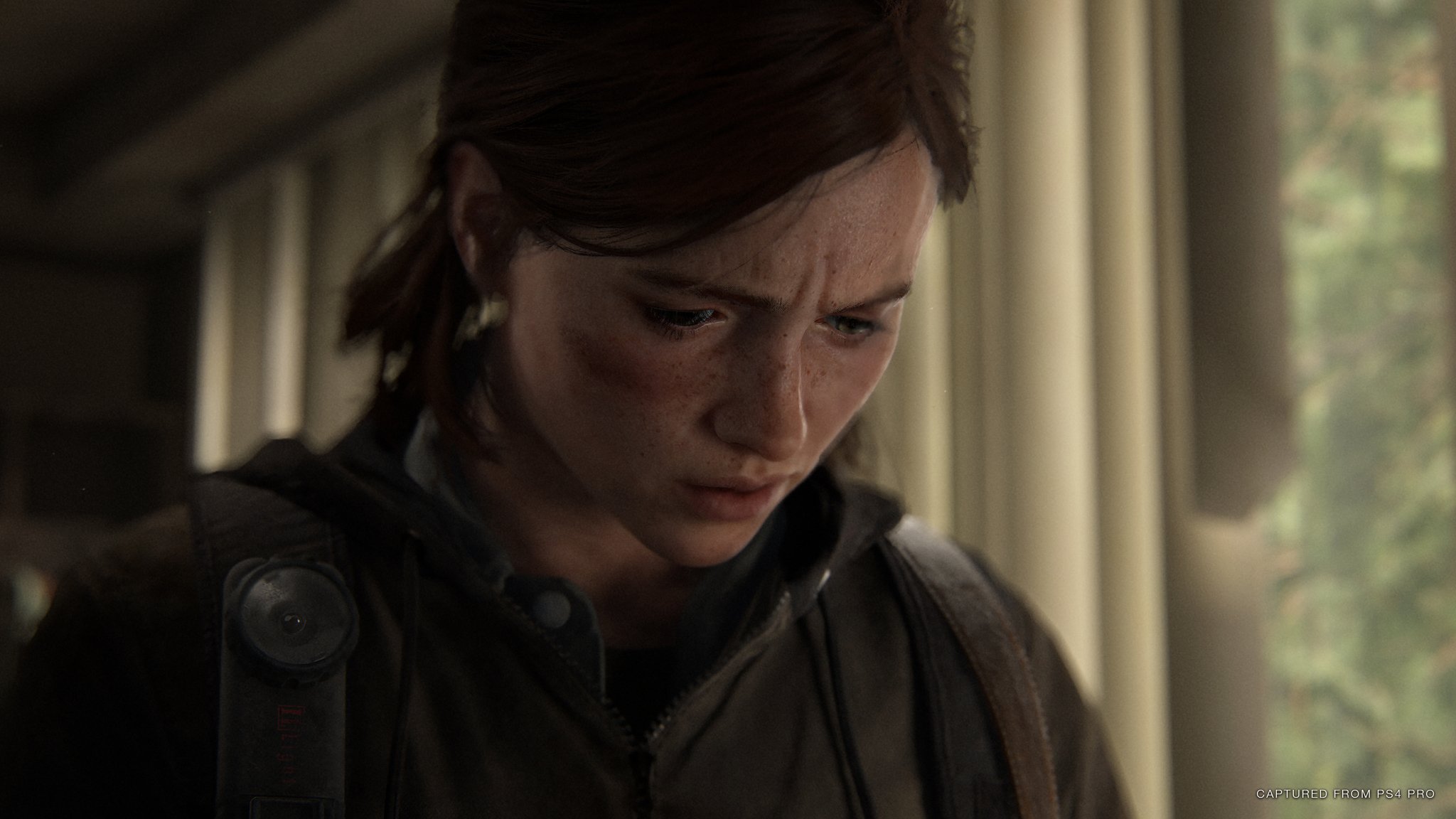
Major spoilers for The Last of Us Part 2, Dishonored, Dishonored 2 and Avatar: The Last Airbender lie ahead.
You could say that The Last of Us Part 2 is a masterpiece. Years after its initial reveal, The Last of Us Part 2 is out. At the time of this being written, it has a 94 on Metacritic and Opencritic, signifying dozens of extremely positive reviews. It's also broken PlayStation first-party records, selling four million copies in its first three days, becoming the fastest-selling PS4 exclusive ever. It doesn't get much better for a studio than both critical and financial validation.
I can see why. Going through most of my nearly 24-hour playthrough, laughing and growing morose at the fates of different characters, moving through the setpieces that had been so painstakingly crafted, there was a great deal in this experience that I enjoyed.
Yet as the credits wrapped up and I gathered my thoughts in the hours after finishing my first playthrough, I couldn't shake a gnawing feeling of emptiness. It wasn't sadness at a bittersweet but complete ending, nor was it needing time to process my experience — it was simply emptiness. The dawning realization that the last 10% of the journey I'd played made no sense and completely invalidated what I'd played before created a broken tale of sheer nihilism.
There are two main issues I have. The game fails to instill much sympathy in a major character that would allow its twist to work. It also fails to set up the ending through the limitations of gameplay, making certain choices completely jarring and unnatural.
The details Naughty Dog has instilled in this world must be admired. The animations, the dense foliage and overgrowth, just how GREEN everything is — it's a technical marvel. I've spent a large amount of time just fiddling with the guitars, trying to match different songs. The dialog and conversations between different characters are some of the most natural I've ever listened to.
And all of it is thrown away at the end to just hammer in that "revenge is bad."
Be an expert in 5 minutes
Get the latest news from Android Central, your trusted companion in the world of Android
Disclosure: I played early with a review copy provided by Sony Interactive Entertainment Canada.
The problem with Abby
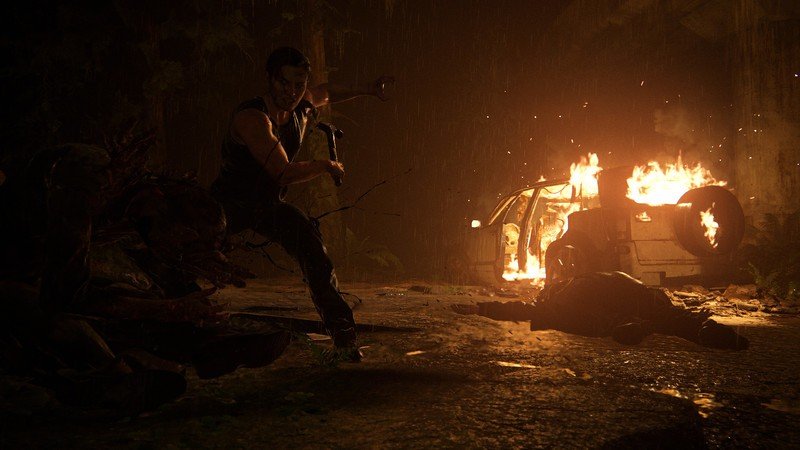
If you've played it, or been spoiled, you know that The Last of Us Part 2 has a twist or two ready and waiting, including a card trick up its sleeve. After going through the first half of the game almost entirely as Ellie, you play as Abby for most of the second half, rewinding to a flashback long before day one in Seattle and seeing her side of the story.
I appreciate what Naughty Dog tried to do. It seems like the directors understood that simply retreading the ground of the first game — taking Joel and Ellie on some sort of road trip, killing and exploring across the country as they bond — wouldn't suffice. Risks had to be taken.
On the surface, this idea pays off. However, there's one multi-layered problem. Abby is a good character, but she's not a sympathetic character.
She works quite happily for the WLF, which is essentially a fascist militia. An attempt is made to paint the WLF as a working commuity, a counterpart of sorts to Jackson, which doesn't work. We see in the scattered documents across Seattle that the WLF act just as bad — if not worse — than the previous military occupation. The WLF shoot newcomers on sight. Meanwhile, Jackson welcomes newcomers, as we see Tommy offer Abby's group shelter and the ability to restock on supplies. She also happily supported the death of Seraphite children before being saved by Yara and Lev. To try and compare the two and make the player retroactively disregard Ellie's path of vengeance is, at best, insufficient and at worst comical.
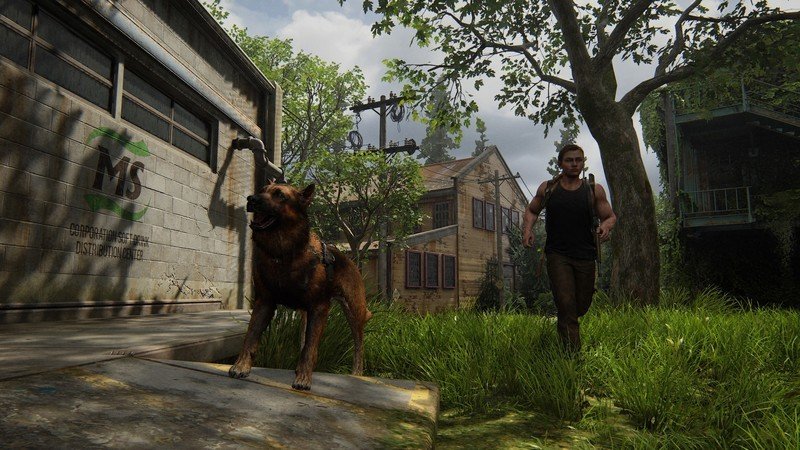
I'll admit I was taken aback upon learning that Abby's father was the head surgeon for the Fireflies that Joel killed. Wanting revenge for that is understandable. However, you learn that in the first hour of gameplay in Abby's section, and there's another dozen or so to go. For the remainder of this time, I kept having the same concerning thought hammered out in my head: Simply playing as Abby doesn't make me feel for her.
Abby isn't Ellie's counterpart — she's Joel's.
Even Abby's friends, which we're also supposed to learn to sympathize with in Abby's section are, for the most part, awful human beings. Only Owen and Mel are given any reasons to be liked at all and even then just barely. We see Owen happily cheat on his pregnant partner with Abby. Mel is barely a character at all outside her relationship with Owen.
Aside from Mel and Owen, Abby isn't given enough time to soak in the deaths of her friends — deaths that are a natural consequence of her vengeance against Joel. If we'd seen Abby react, realize her group is being stalked and hunted one by one, casting Ellie in a light akin to a serial killer, it would've given an opportunity for more shreds of humanity to emerge.
This lack of sympathy makes sense under a different lens though. I've had conversations with friends who also finished this game and many of them say they see Abby as Ellie's counterpart. But Abby isn't Ellie's counterpart — she's Joel's.
Joel was a brutal man in a brutal world and his death acted like karmic justice for his actions from the first game. Abby's a brutal, violent person who threw away stability because something made her feel love, just like Joel. This is a brilliant analogue but one that goes against the idea of Abby being justified. Joel wasn't justified in his actions, so why is Abby?
Abby remains antagonistic yet is the playable character who ultimately succeeds.
Ellie gives Owen and Mel a chance to make it out of her quest for vengeance alive. If they give up Abby's location and don't do anything stupid, they'll get out. Owen makes a jump for Ellie's gun anyways, resulting in a fight that sees both Owen and Mel end up dead.
In killing Mel, Ellie accidentally kills a pregnant woman, not realizing she was pregnant, and has a complete breakdown. Meanwhile, closer to the end of the game, when Abby has smashed Dina's face and is holding a knife to her throat, what's her reaction to hearing that Dina is pregnant? "Good." This just serves to reinforce her sadistic tendencies despite some morally good things she did throughout the game.
Failing to induce sympathy for Abby wouldn't necessarily be a problem, as just playing as an antagonist can provide refreshing perspective. This becomes a major problem in the ending, however, where that lack of sympathy adds a sense of frustration. I wanted to win that final fight as Ellie, and Ellie's subsequent decision to spare Abby is made all the more irritating. It builds the sense of nihilism because Abby remains antagonistic yet is the playable character who ultimately succeeds.
On the subject of mercy
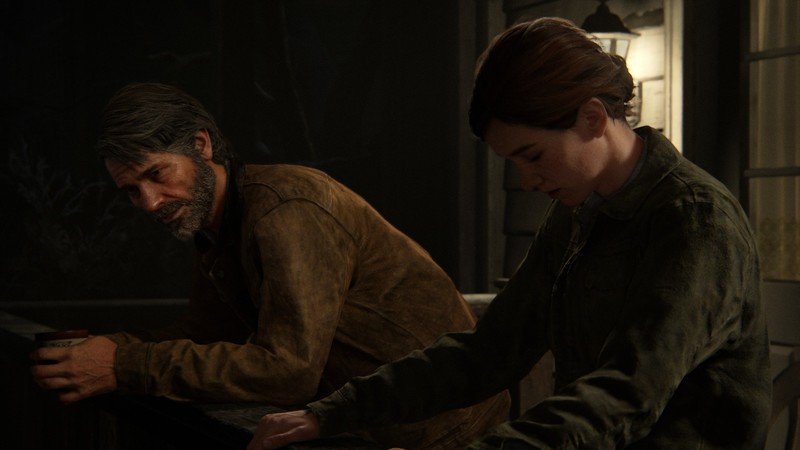
So, as Abby isn't Ellie's counterpart but is instead Joel's, there's no peace to be found in her being spared at the end of the game. At no point prior, even once, is Ellie shown to be considering the possibility of mercy. When we find Ellie and Dina living peacefully on a farm later on, Ellie does initially refuse Tommy's request to resume hunting Abby down, only to realize she must finish it when continued PTSD flashbacks replay Joel's death.
All of this comes to a head in the final fight, as Ellie and Abby clash in Santa Barbara. It's in this final raw struggle that, bruised, weary, and having had two fingers bitten off, Ellie sees a flashback of Joel. It's just a brief glimpse of a scene we see in totality later (one that reduced me to red eyes and flowing tears since Ashley Johnson and Troy Baker perform their hearts out), and one we later understand was the last night Ellie saw Joel alive. It was during this night that she decided to try and forgive him. In this moment, Ellie chooses to let Abby and Lev go.
Ellie's is a story about overcoming trauma and the need for revenge. You see a similar arc in Avatar: The Last Airbender. The young waterbender Katara finally tracks down the man who killed her mother, robbing her and her family in childhood. Yet upon confronting this raider and seeing how destitute and pathetic he has become, Katara can't go through with it.
However, it's not a direct comparison because Katara had found a new family in her group of friends who loved and cared for her. Ellie had lost everything and is reminded in that moment that a chance of a new life with Joel was violently ripped from her. She's not going to magically stop having PTSD flashbacks just because she spared Abby. Flashing back to her last real conversation with Joel and being denied that reconciliation, being denied that growth and life, should if anything re-intensify her need for revenge, not weaken it.
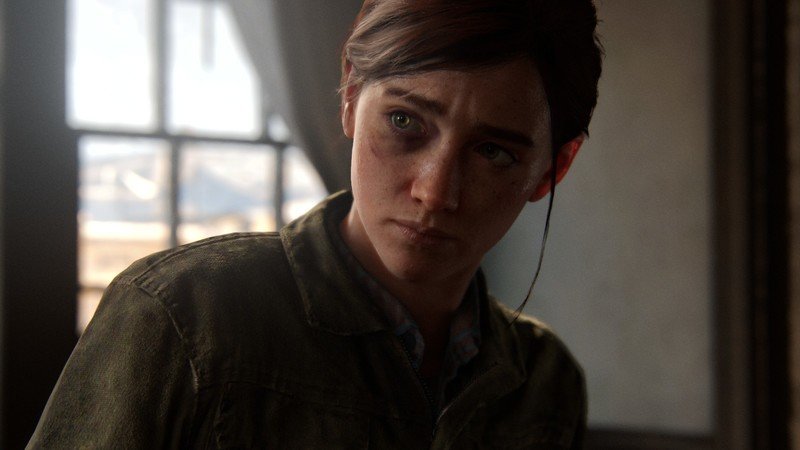
The idea that vengeance leaves you hollow is hardly new. Communicating that believably through gameplay however, remains somewhat elusive. In Dishonored and its sequel Dishonored 2, the easiest path to victory is just slaughtering your way there. However, these games are careful to note that death adds up and while some might deserve to die, wanton butchery begets wanton misery. This works because every last death is in your hands, as a player.
Even then, there's always a cost. Don't want to kill the man who is building a mechanical army for your rival? Fine but you'll need to fry his brain. Funding for a corrupt Regent simply has to be cut but you don't want this lady's blood on your hands? Handing her over to her stalker is the alternative. The cost of revenge is up to you, believably building how you're supposed to feel by the end.
Meanwhile, in The Last of Us Part 2, we're expected to cut through dozens, if not hundreds, of people almost always in self-defense. However, when Ellie finally has revenge in her grasp, she can't go through with it. Random hooligans are deserving of more atrocious acts than someone who killed your adoptive father, crippled his brother, killed another of your close friends, and nearly killed your girlfriend.
I'm seeing echoes of the first game's ending spitefully turned on their head, as Joel told Ellie that he struggled for a long time with surviving and that in the end "you keep moving forward." Ellie's need to matter, to be a part of a cure in a choice that Joel took away, is emphasized. "After all we've been through. Everything that I've done. It can't be for nothing."
Yet here, it is. The hundreds she's killed, the sacrifices she made, the people she's lost, her musical connection to Joel: it is for nothing.
What could have been
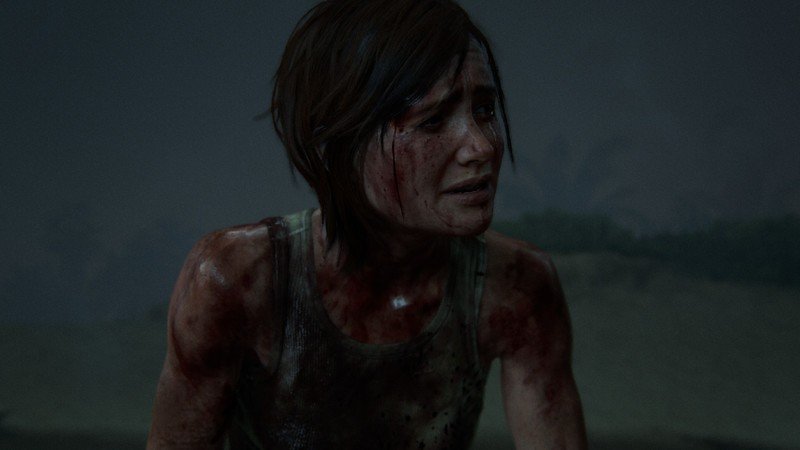
The weirdest part of all this is that I definitely believe there was an ending where you can get this point across, that revenge will take everything away from you and leave you hollow and it would be by simply having Ellie kill Abby.
Despite the utter, bleak nihilism that this game's ending is bathed in, I really like parts of the game overall.
Alternatively, have Ellie give up this chase after the theater. By finding strength in her family, learning to cope and endure her PTSD while keeping on moving forward, she would reach a place that makes far more sense thematically. There are fights you can't win. Learning to let go and live with the pain makes sense here. She can accept Joel's words and just move forward, allowing her to make peace with losing him.
Instead, by mashing these two together, we're left with a truly bizarre, worst-of-both-worlds situation, sinking into a pit of sheer nihilism where Abby's vengeance is justified but Ellie's isn't. Abby completed the cycle of revenge from the start and succeeded.
Even in how she suffers, Ellie's agency is taken away. Her relationship with Joel was fraught and tense at times but her music, her love of guitar from Joel teaching her, which we see time and time again throughout the game, is something near to her heart, something reassuring — and is literally severed. She nonsensically makes the choice to spare Abby after having two fingers bitten off, which heartbreakingly severs her musical connection to Joel.
All of this is quite harsh, so I'll reiterate: despite the utter, bleak nihilism that this game's ending is bathed in, I really like parts of the game overall. It's an experience I'll remember, one that I am glad I undertook and that Naughty Dog deserves much praise for telling. I hope the team that worked hard on this is enjoying a long rest.
People can continue to fight over whether this is a story of love or a story of hate, when it doesn't take much to realize it's both. Love can turn to hate and hate can turn to love. Art is subjective but it's also made with a message, with an intent from the author. In crafting this title, the team at Naughty Dog has shown an intent with their art. It absolutely tells a message. I just doubt it's the one they intended.
Samuel Tolbert is a freelance writer covering gaming news, previews, reviews, interviews and different aspects of the gaming industry, specifically focusing on PlayStation on Android Central. You can find him on Twitter @SamuelTolbert
